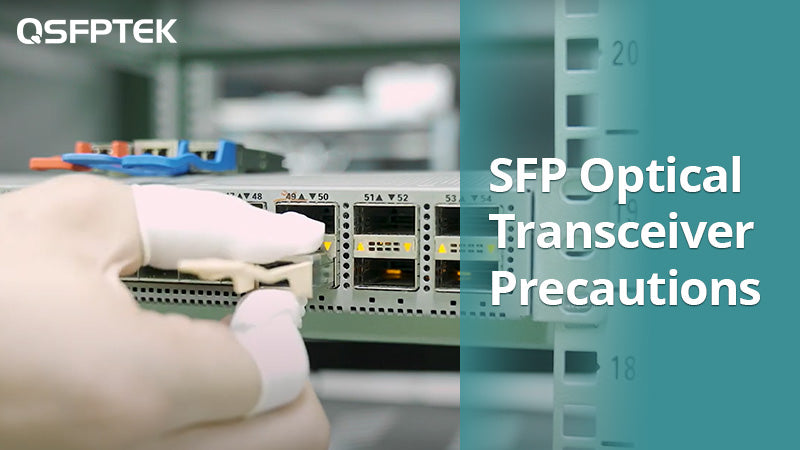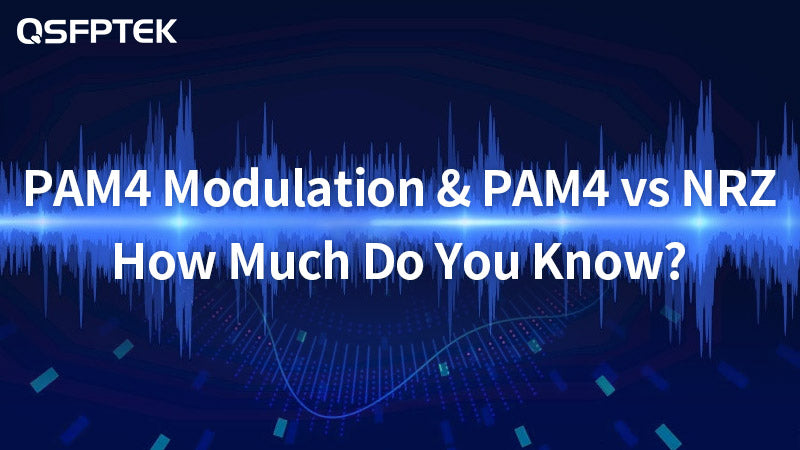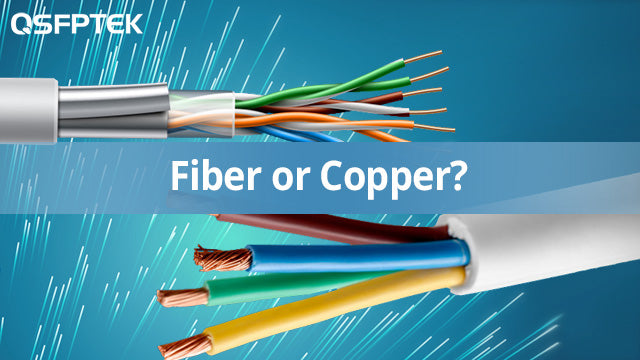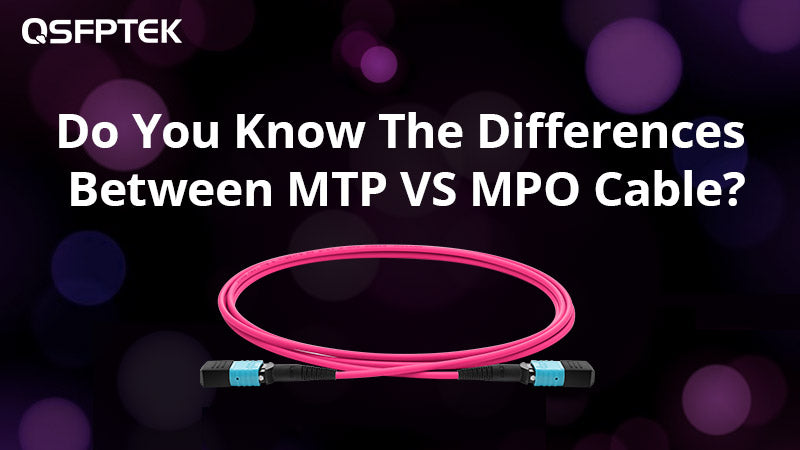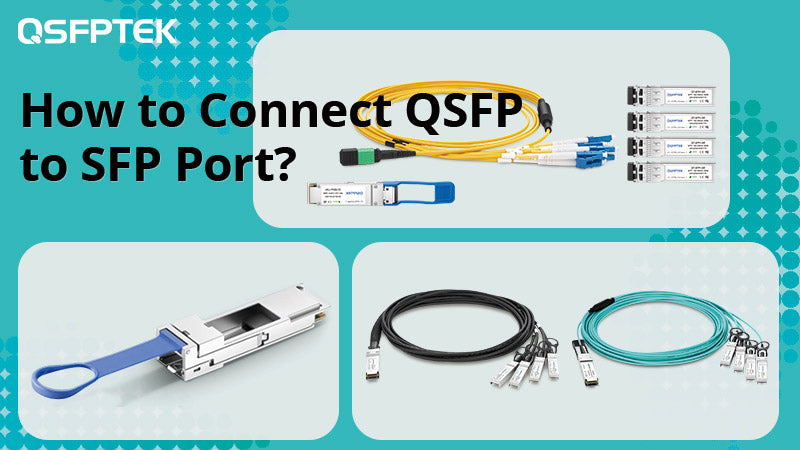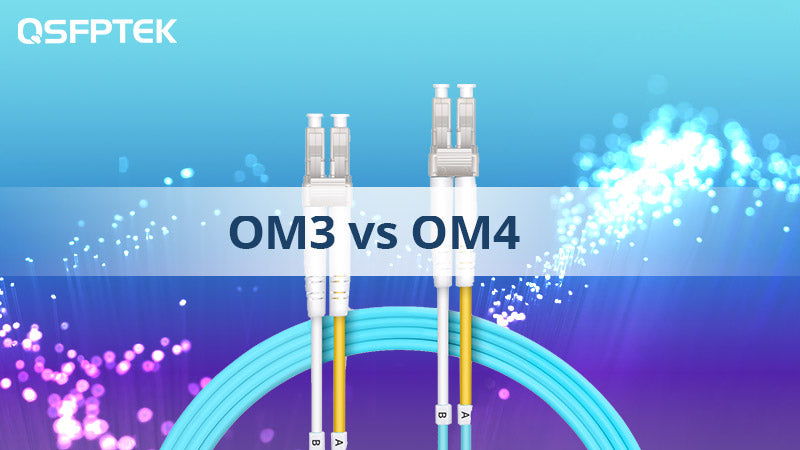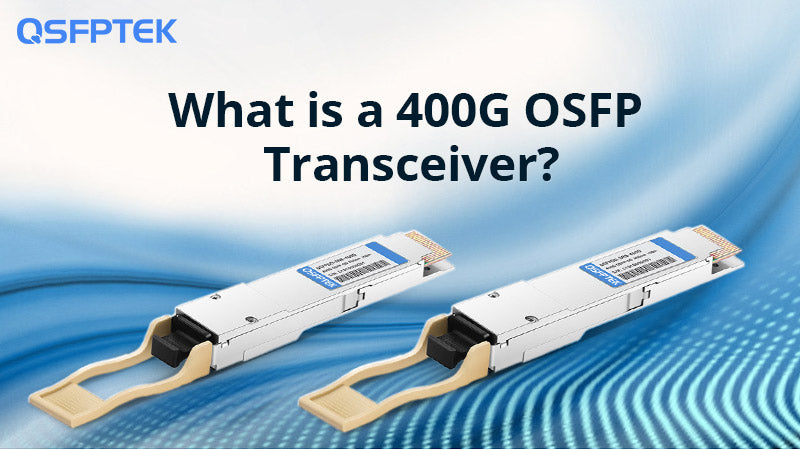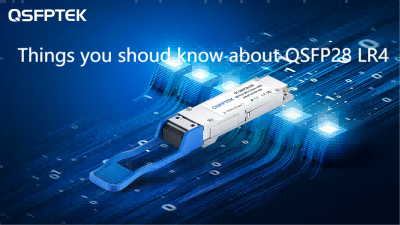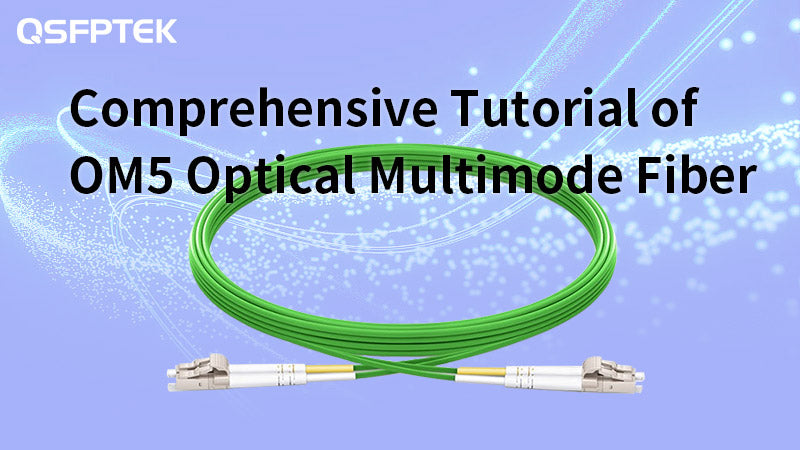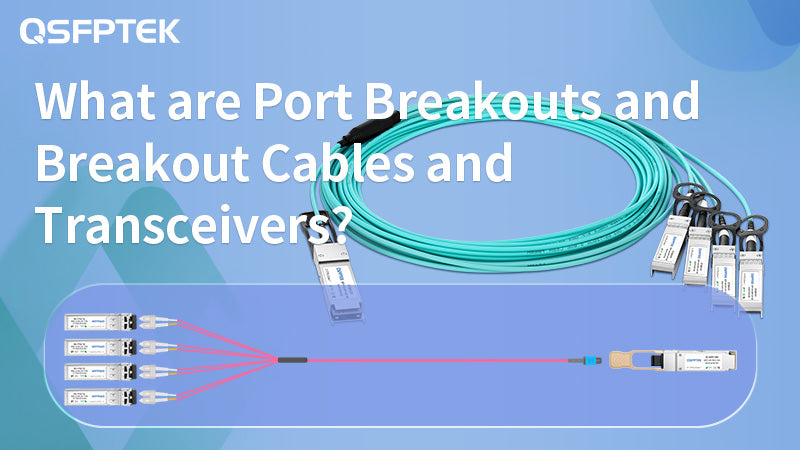Sidebar
Recent Articles
-
SFP Optical Transceiver Tutorial on Installation, Removal and Precautions July 18, 2022
-
PAM4 Modulation & PAM4 vs NRZ, How Much Do You Know? July 08, 2022
-
Advantages of Fiber Optic Cable Over Copper Cable June 30, 2022
Featured Products
-
SFP Optical Transceiver Tutorial on Installation, Removal and Precautions
by KevinLee onHow to install SFP module? How to remove SFP module? What are the precautions to use optical transceivers? This SFP guide tutorial will answer those questions on maintaining transceivers. -
PAM4 Modulation & PAM4 vs NRZ, How Much Do You Know?
by KevinLee onCompared to NRZ, PAM4 signaling double the data capacity per lane and reduce system cost. PAM4 modulation is most suitable for high-speed and short-range data center interconnects. -
Advantages of Fiber Optic Cable Over Copper Cable
by DerekL. onBoth fiber optic cable and copper cable are common transmission media in communication networks. This article will introduce fiber optic and copper cable, analyzing the differences between them and the advantages of optical cable over copper cable. What Is Fiber Optic Cable? Fiber optic cable, the transmission medium of communication networks, is designed to transmit optical signals. Fiber optic cable is mainly composed of... -
Do You Know The Differences Between MTP VS MPO Cable?
by ChouMoore onData centers now generally need higher transmission rates and greater data capacity to cope with the current demand for high-performance computing. Multi-fiber connectors are currently used in the more popular cabling systems for data transmission. Multimode fiber optic connectors include MTP and MPO. MTP fiber optic cable, as an alternative to MPO fiber optic cable, has better performance in 40/100G or even 200/400G networks,... -
How to Connect QSFP to SFP Port? - Multilane Transceivers, QSA or Direct Attach Splitter Cables
by KevinLee onTwo switches are located in adjacent layers on the same rack, one spine switch has 40G QSFP+ ports only, and the other switch is a gigabit switch with 4 SFP+ ports. How to connect the QSFP+ port to the SFP+ ports? -
OM3 vs OM4 Multimode Fiber: Which to Choose
by DerekL. onFiber optic cables consist of single-mode fiber and multimode fiber. In the previous post, we discussed the differences between single-mode fiber OS1 and OS2. How about the multimode fiber? Multimode fiber also includes many types, including OM1, OM2, OM3, OM4, and OM5. Among them, OM3 and OM4 multimode fibers are the most widely used types today. The following post will discuss the differences between... -
What is a 400G OSFP Transceiver?
by ChouMoore onThe OSFP, which is also called the Octal Small Form Factor Pluggable, this new pluggable form factor that has eight channels of High-Speed Electrical that will provide 400G Ethernet (8x50G or 4x100G). Even though the 400G Ethernet has not been serviced for most data centers yet, the 400G Ethernet is going to be the future of the next leading Ethernet rate. Plenty of cloud... -
Things you should know of 100GBASE-LR4 QSFP28 Transceiver Module
by KevinLee onThis article will introduce the things about qsfp28-100g-lr4 in detail. You will learn a lot. What is qsfp28 100g lr4 transceiver module The QSFP28 100G LR4 Transceiver Module is a device that allows for the transmission and reception of data in either direction on a single physical connection. “LR” means long range. Qsfp28 100g lr4 transceiver module is a high-speed, high-performance module that has... -
Comprehensive Tutorial of OM5 Optical Multimode Fiber
by ChouMoore onData center bandwidth requirements and data transmission needs are expanding rapidly with the rapid development of new technologies.OM5 fiber is designed as a new multimode fiber (MMF), the data centers can get more bandwidth and higher speed through OM5 multimode fiber. It is typically used for high-speed transmission links. So do you know what features OM5 multimode fiber has and how it differs from... -
What are Port Breakouts and How to Deploy Breakout Cables and Transceivers?
by KevinLee onBreakout mode is a function of an optical module connector with the ability to evenly distribute the whole bandwidth at one end into several lower-speed connectors at the other end. For instance, a QSFP28 module is capable of 100G QSFP28 to 4x 25G SFP28 connectivity.




















































































































